Any kid who grew up in the 1980s is familiar with the films of Don Bluth. Often dark and moody and more than a little traumatic, these films managed to somehow look like Disney films but conveyed significantly more emotional maturity. While Bluth continued to release films well into the 1990s, the quality began to suffer, and few of them attained the heights of success that his films in the 1980s did. Still, Don Bluth deserves a lot of credit for his ability to push animation to explore more mature themes and issues than many of his competitors.
10 Secret of NIMH (96%)
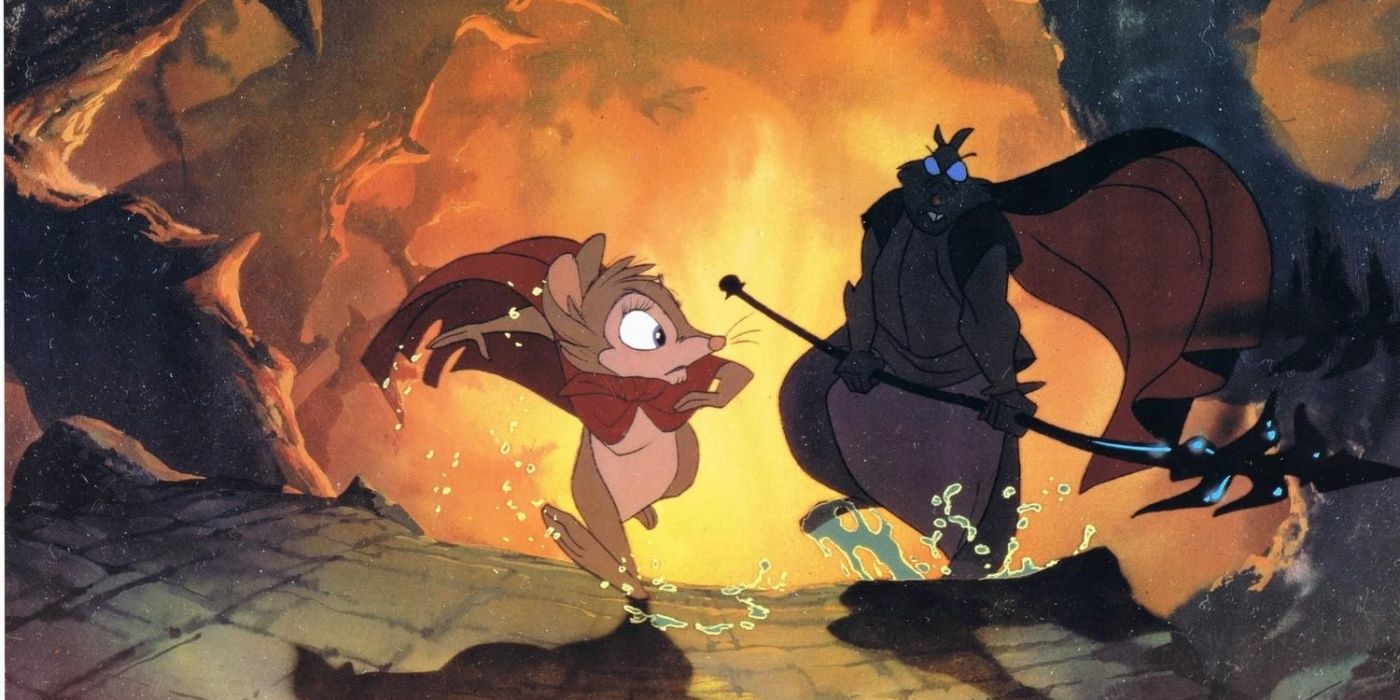
When it comes to dark animated films, The Secret of NIMH is right there at the top. The film follows the adventures of a mouse named Mrs. Brisby, as she attempts to gain aid from the secretive rats of NIMH to save her family from the farmer’s plow. The animation in this film is nothing short of amazing, and it features a number of compelling characters, including Jeremy the crow (voiced by Bluth stalwart Dom DeLuise) and the malevolent rat Jenner (played with gritty relish by Paul Shenar).
9 Anastasia (85%)
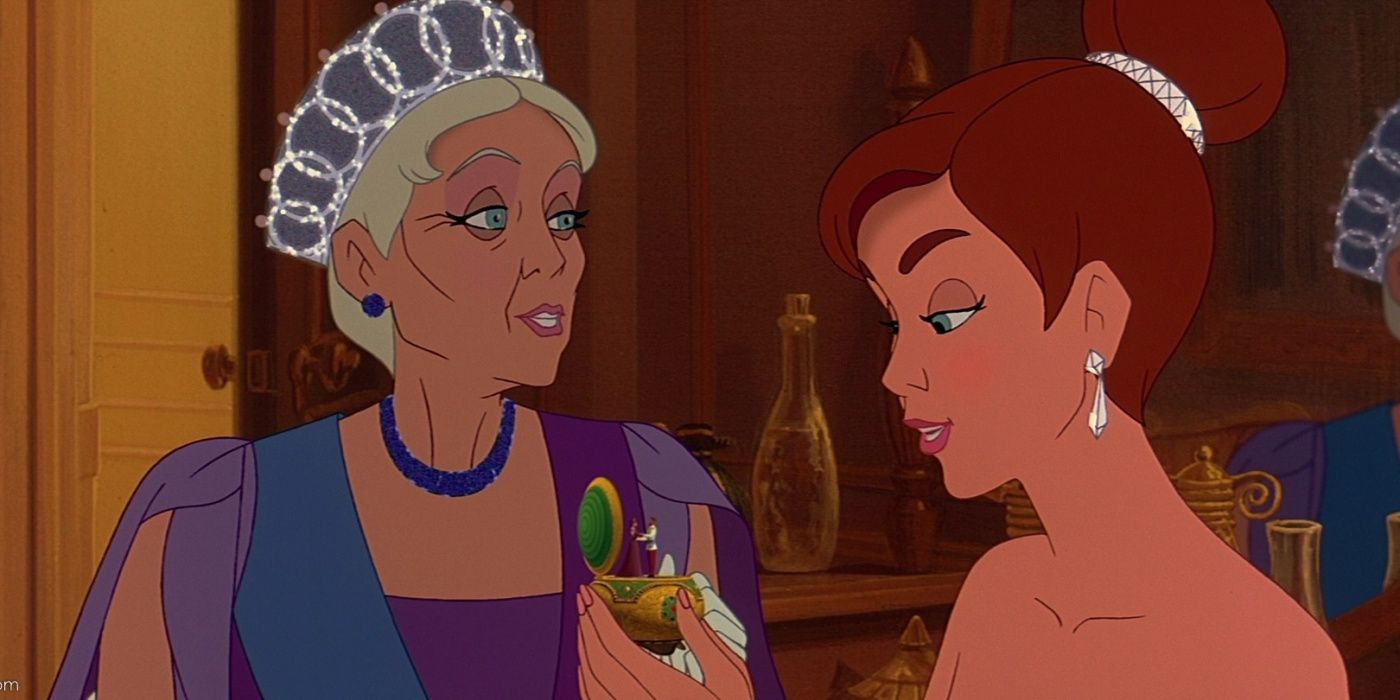
Anastasia is one of those rare things: a Don Bluth film from the 1990s that actually received both critical and financial success. Telling the story of the famous Romanov princess, the film features the voice of Meg Ryan in the titular role, as well as Christopher Lloyd as the villainous sorcerer Rasputin (who somehow manages to survive the attempt on his life).
Though of course, the film plays fast and loose with history—there’s no chance that Anastasia survived the slaughter of her family—it is full of charm and beautiful animation and music. It’s actually more like a traditional Disney film than a Don Bluth one, and that probably played a role in its success.
8 The Land Before Time (72%)
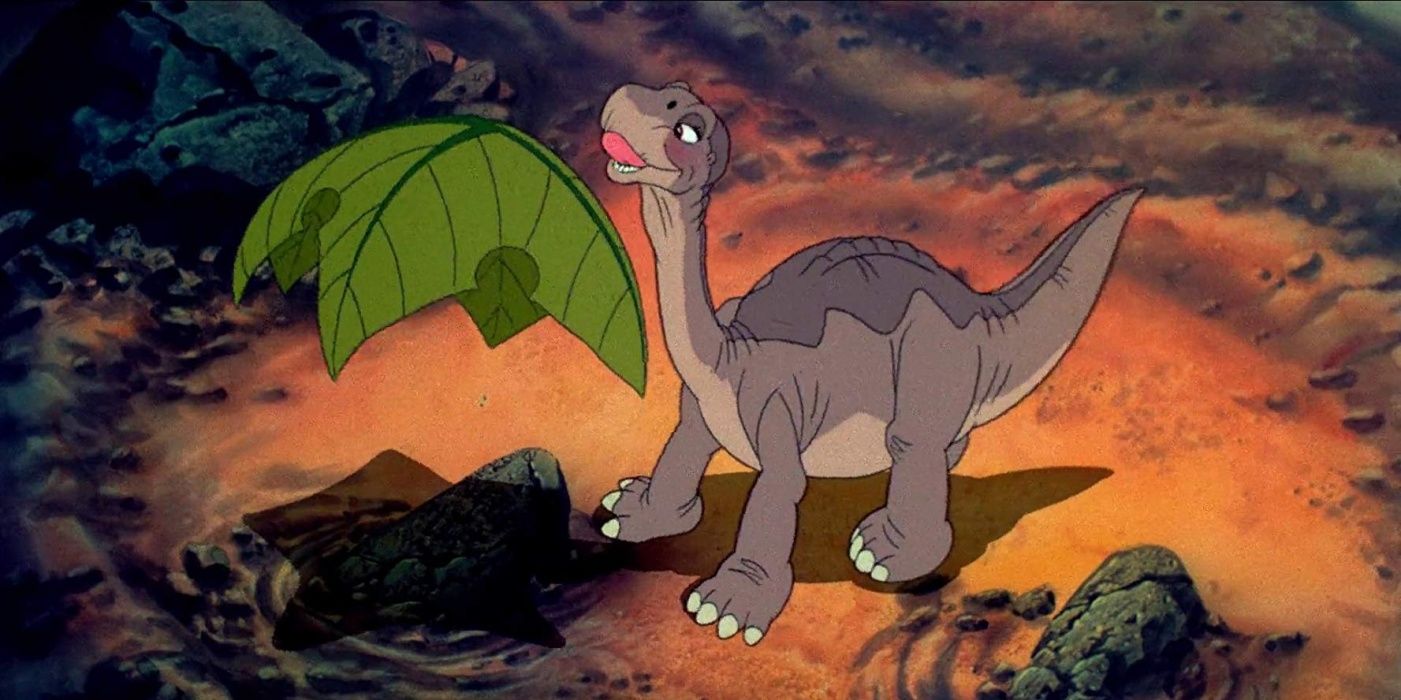
Most people who grew up in the 1980s can probably remember being traumatized by this film. And why not? It’s famous for having one of the most gut-wrenching parental death scenes in the history of animated film. However, it’s precisely the emotional maturity of the film that explains why it remains so popular (even if the sequels don't quite match it). As with so many other Don Bluth films of that period, the animation is truly top-notch. There are so many moments when you can just sit back and marvel at what it’s possible to achieve in animation. And the closing number, sung by Diana Ross herself, hits you right in the feels.
7 An American Tail (70%)
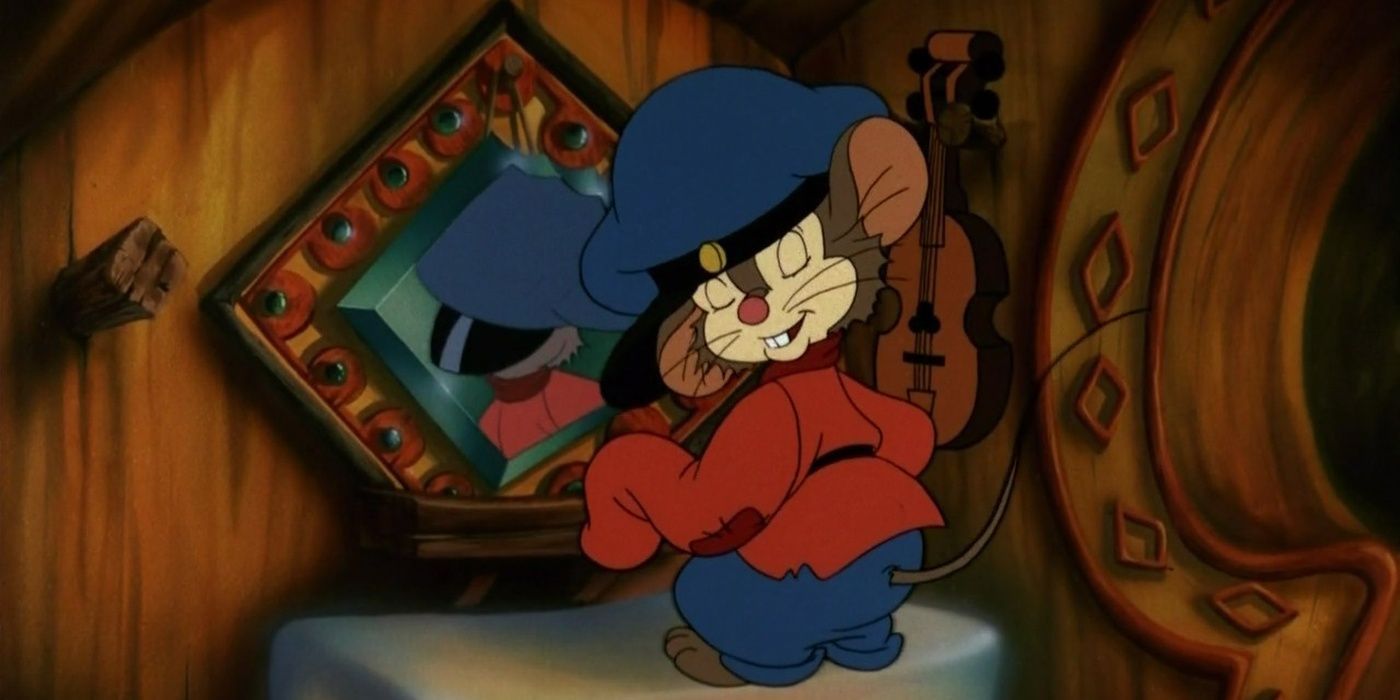
While not as emotionally devastating as The Land Before Time, An American Tail still manages to pack some emotional punches in its story about a family of mouse immigrants as they struggle to make life work in early 20th Century America. When little mouse Fievel is separated from the rest of the family, he struggles to survive and to make it back to them.
There are some truly powerful moments in this film, and its songs—such as “There Are No Cats in America” and “Somewhere Out There”—are definite earworms.
6 Titan A.E. (51%)
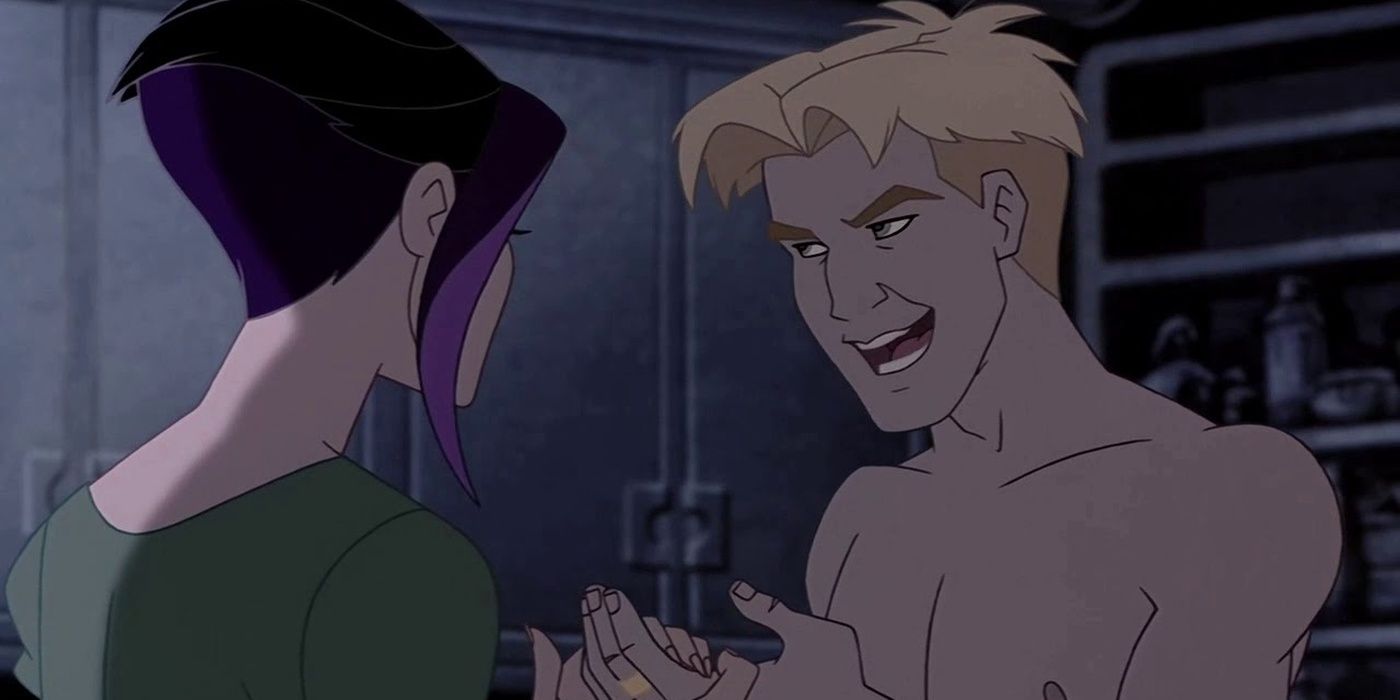
This film is something of an anomaly in Bluth’s oeuvre. Set in a very distant future in which humanity has become a wandering race after the destruction of the earth, the film feels a bit ahead of its time in terms of its production values and its storytelling. Though it wasn’t a critical disaster like some of Bluth’s other offerings, it was definitely a financial disappointment. In fact, it only earned half of what it cost to make, making it a bit of a disaster for its production studio, Fox Animation Studios.
5 All Dogs Go To Heaven (44%)
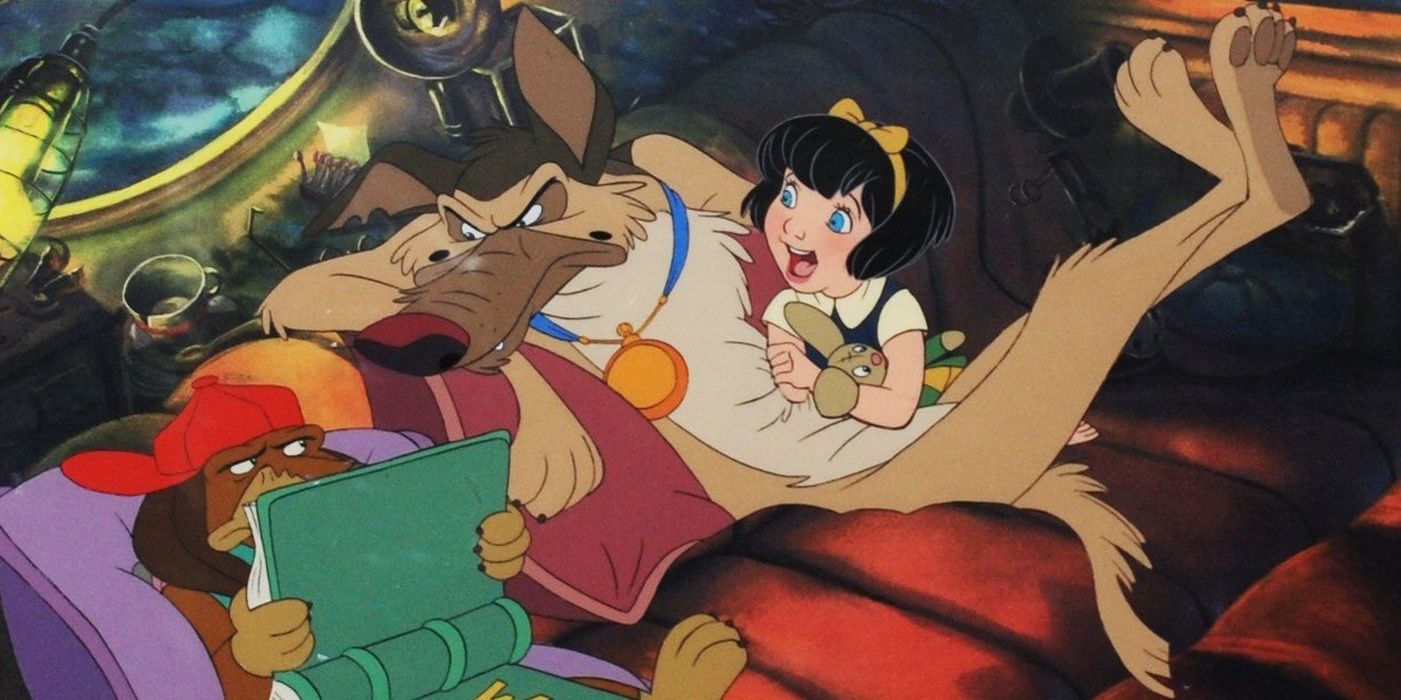
All Dogs Go to Heaven is signature Don Bluth. Full of pathos and dark emotions, with truly stunning visuals to match, it follows the adventures of Charlie. There are some scenes in the film that make it unsuitable for young children, including one in which Charlie literally dreams about going to Hell. Though All Dogs Go to Heaven didn’t attain quite the same heights of critical and financial success as his earlier films, it was still successful in both theatrical release and on home video, and it is rightly seen as a key part of his artistic legacy.
4 Thumbelina (30%)
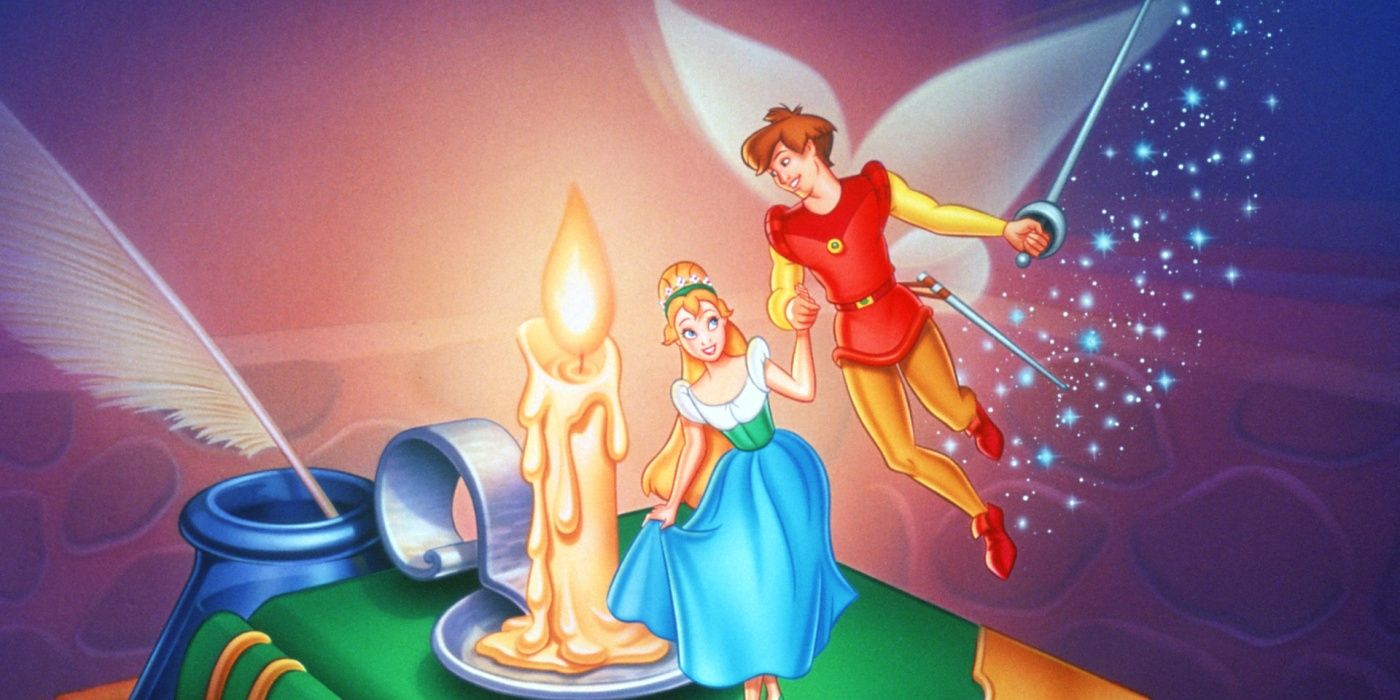
At first glance, Thumbelina looks like it has the makings of success. It draws from a fairy tale, it has a talented voice cast, and the animation is, like always with Bluth, lively and engaging. Unfortunately, it failed to connect with both viewers and critics.
As with so many of Bluth’s outings in the 1990s, Thumbelina tries to take a page from the Disney playbook but fails to capture the magic of Disney’s offerings of the time. Even the voice of Jodi Benson—famous for playing Ariel in The Little Mermaid—couldn’t rescue this film.
3 Rock-a-Doodle (20%)
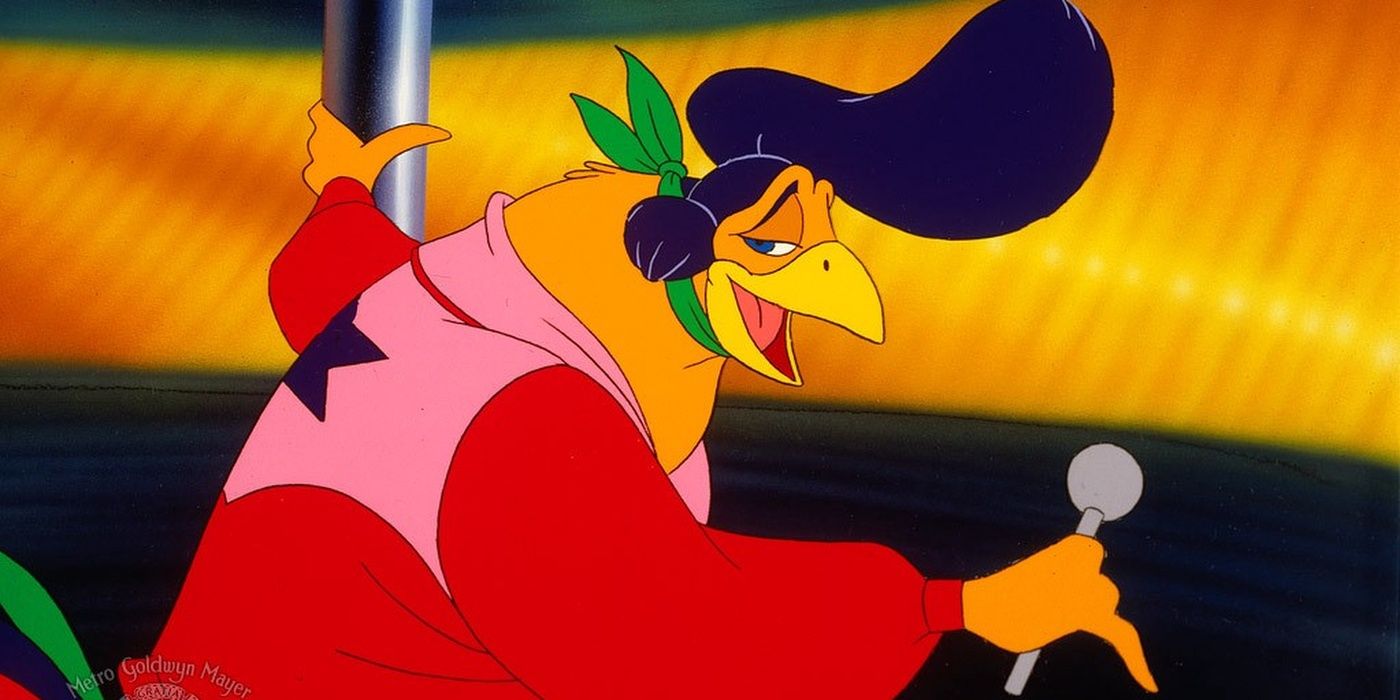
Strangely enough, while this film is arguably less strange and childish than some of the other 1990s Bluth films, it struggled both at its time of release and after to garner respect. Perhaps it’s because the film is so narratively strange—a boy becomes a cat in an attempt to convince a rooster to come back and defeat a villainous owl—that it failed to impress either audiences or critics. However, the film does have its high points, including the voices of Glen Campbell as the rooster Chantecler and Christopher Plummer the Grand Duke of Owls.
2 A Troll in Central Park (17%)
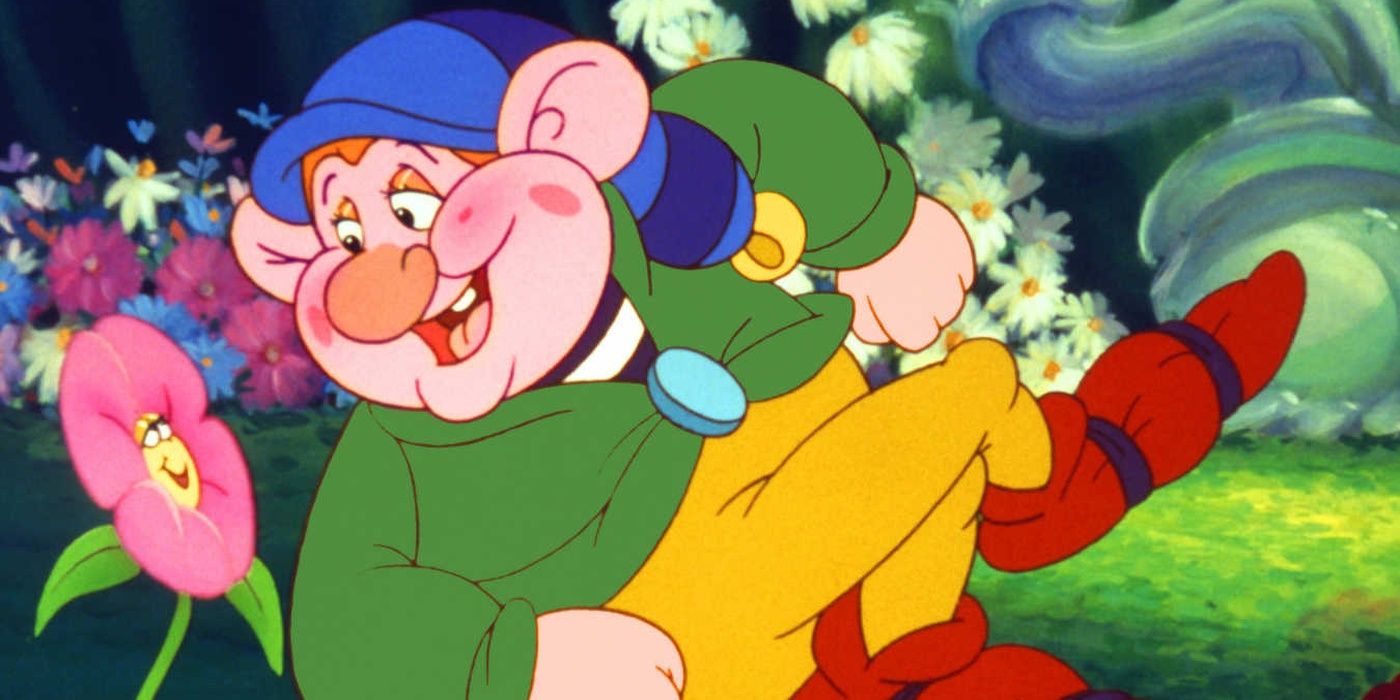
Sometimes, a film comes along from someone you know and love and it makes you wonder if you’ve imagined everything else. Such is the case with A Troll in Central Park. The film is just such a bizarre outing from a maestro like Bluth, and it’s very sad that he thought this film was in any way a good idea to make. It’s probably because of this that the film was both a financial and critical disaster. The film simply comes across as too crass and childlike, and those are two things that are definitely not what you associate with Don Bluth.
1 The Pebble and the Penguin (11%)
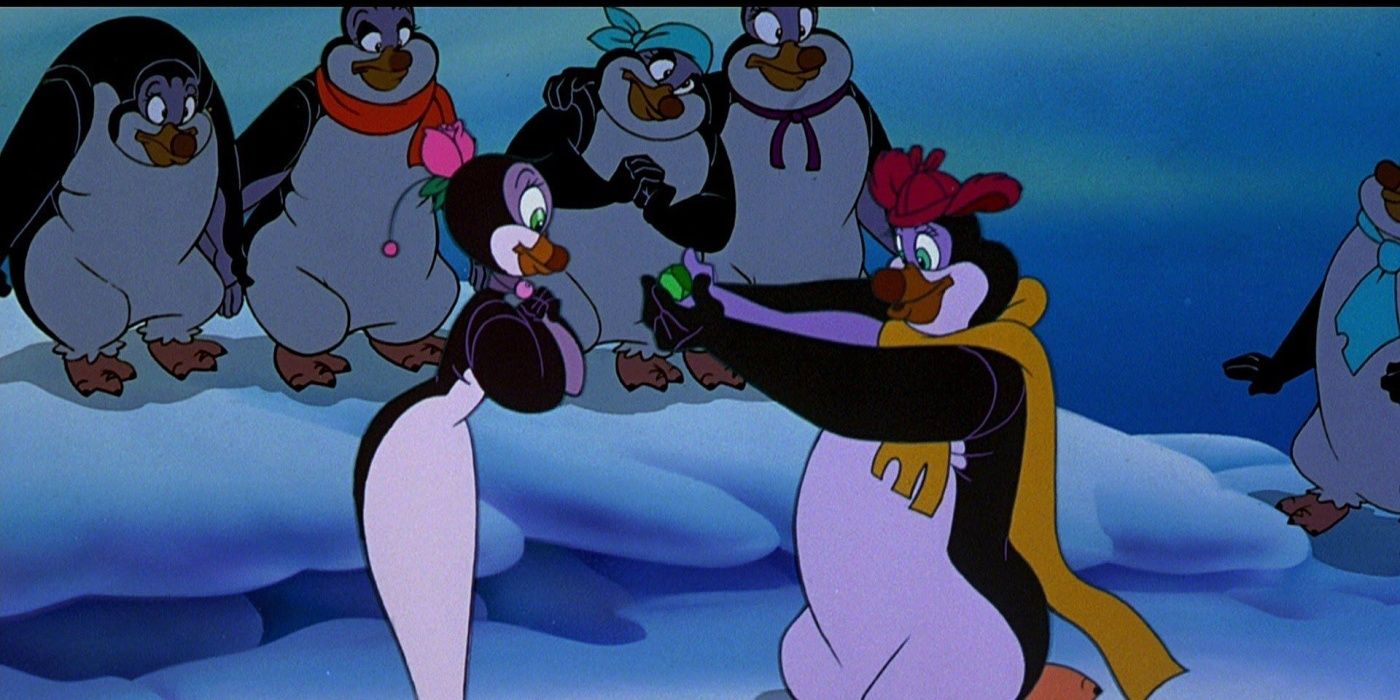
There are some Don Bluth films where you really have to wonder what was going through his head, and that is the case with the Pebble and the Penguin. This is one of those Don Bluth films that seems to be trying to capture some of the Disney magic—talking animals, a hero’s journey—but it doesn’t do it nearly as well as Disney. The film was met with both critical and financial failure, a mark of Bluth’s declining fortunes throughout the 1990s. Even the film’s decent animation and attention to detail ultimately couldn’t save it.
from ScreenRant - Feed https://ift.tt/2wftQuB





No comments: